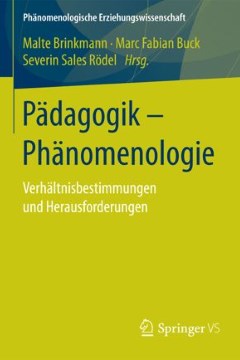Phenomenology and the study of nature places
A schoolyard place study
pp. 275-289
Abstract
The psychology of place begins with an understanding that places are more than mathematical coordinates or Cartesian res extensa. Merleau-Ponty's analysis of the experience of space shows that the body opens onto a world composed of significations, and that lived space is more primary and foundational than the conceptual space of geometry. The phenomenology of place aims for this lived, pre-logical, wild dimension of spatial experience. The following essay will give a brief philosophical introduction into the relationship between consciousness, nature, and place, lay out the basic structure of the Husserlian phenomenological method as a tool for reading places, compare it to Goethean phenomenology, and demonstrate the stepwise application of phenomenology to the study of the nature places in an elementary school yard.
Publication details
Published in:
Brinkmann Malte, Buck Marc Fabian, Rödel Severin Sales (2017) Pädagogik - Phänomenologie: Verhältnisbestimmungen und Herausforderungen. Dordrecht, Springer.
Pages: 275-289
DOI: 10.1007/978-3-658-15743-2_16
Full citation:
Simms Eva-Maria (2017) „Phenomenology and the study of nature places: A schoolyard place study“, In: M. Brinkmann, M.F. Buck & S.S. Rödel (eds.), Pädagogik - Phänomenologie, Dordrecht, Springer, 275–289.


